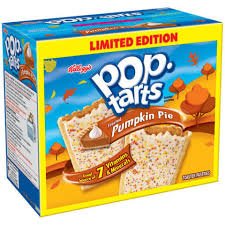For many years, Pop-Tarts, a popular breakfast pastry, have pleased customers with their wide variety of flavours. But among the classics, there are some experimental flavours that have confused and baffled a lot of people. This piece explores the world of “cursed” Pop-Tart flavours, looking at the peculiarities that have both piqued and repulsed palates.
What Qualifies a Taste as “Cursed”?
Prior to getting into particulars, let’s clarify what exactly qualifies as a “cursed” Pop-Tart flavour. These are usually combinations that deviate greatly from classic breakfast foods, which frequently leads to odd or distinctly unpleasant flavours. Strong emotions can be elicited by these flavours, ranging from mild curiosity to blatant revulsion.
The Most Famous Pop Tart Flavours That Are Cursed
A number of Pop-Tart flavours are well-known for having strange and sometimes disagreeable flavour characteristics. A handful that stick out are as follows:
Maple Bacon
Although bacon is a popular breakfast staple, the combination of its flavour with the sweet glaze of a Pop-Tart produced a disagreeable taste. Savoury bacon, sweet maple, and pastry together made people wonder if there are any things that should never be combined.
Watermelon
Pop-Tarts with a watermelon flavour are yet another instance of a failed taste test. Many customers found the abrupt contrast between the classic pastry crust and the fake watermelon taste to be unsettling.
Sriracha
The well-known hot sauce Sriracha made an appearance in a Pop-Tart flavour that left many perplexed. The sweet pastry contrasted sharply with the spicy, tart filling, creating this a flavour that’s difficult for the average breakfast lover to enjoy.
Root Beer
Root beer-infused Not in a positive sense, Pop-Tarts introduced the soda fountain to the breakfast table. It was a perplexing and frequently unpleasant experience since the sweetness of the pastry did not mesh well with the harsh, medicinal taste of the root beer.
Pumpkin Spice
Despite having hordes of devotees, pumpkin spice’s introduction as a Pop-Tart flavour did not meet with universal approval. Oftentimes, the sweetness of the crust and the excessively spicy filling felt overbearing and inappropriate.
Why Do Businesses Produce These Tastes?
Businesses keep experimenting with strange flavours in spite of the frequently unfavourable responses. Even with mixed reviews, this tactic can still create buzz and draw interest. Sales can be boosted by limited-edition flavours in particular because people are curious and want to try new things, even if they appear unusual.
Customer Feedback and Social Media Chatter
Social media’s ascent has intensified reactions to these accursed Pop-Tart varieties. Reviews, memes, and taste tests abound on social media sites like Instagram and Twitter, and they have the power to make or break these experimental goods. These flavours’ propensity to go viral frequently depends on how unique they are and how strongly they resonate.
Conclusion
Even if the tastes of Cursed Pop-Tarts don’t always work well, they are crucial in maintaining brand awareness. These strange pairings, whether adored or despised, capture the daring spirit of culinary invention. For better or worse, firms will probably keep pushing the boundaries of flavour as long as consumer curiosity drives behaviour.


